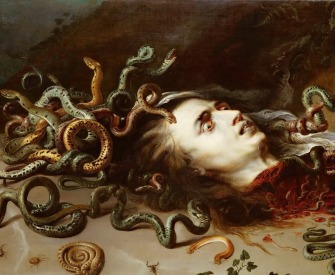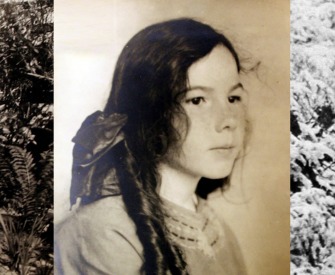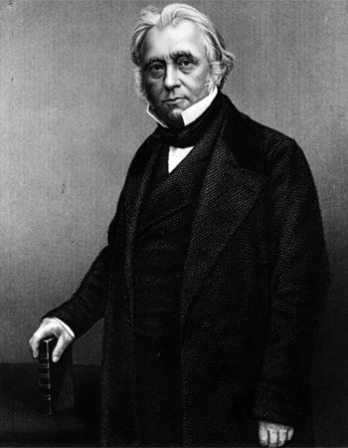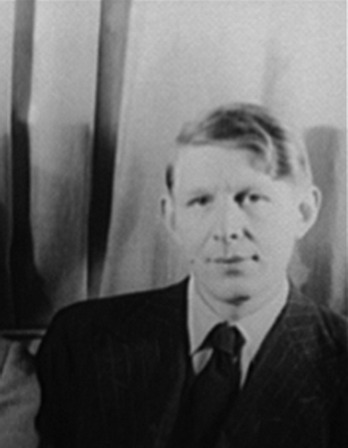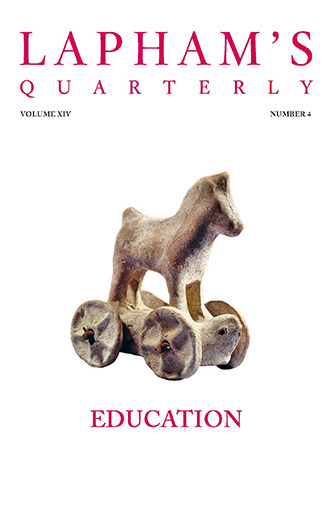Pan: How do you do, my father Hermes?
Hermes: And how are you? But how am I your father?
Pan: Are you not, perchance, the Kyllenian Hermes?
Hermes: Certainly. How, then, are you my son?
Pan: I am the result of an irregular intrigue, your love child.
Hermes: By heaven, rather, probably, of an intrigue of goats: for how could you be mine, with your horns, and such a snub nose, and shaggy beard, and cloven feet, and goatish legs, and tail upon your rump?
Pan: Whatever sneers you aim at me, it is your own son you render an object of reproach, my dear father, but yourself still more, for begetting and making such offspring. I am innocent of it all.
Hermes: And whom do you call your mother? Have I perchance had an intrigue with a goat without knowing it?
Pan: You have not committed adultery with a goat: but recollect yourself, if you have never offered violence to a girl of gentle birth in Arcadia. Why do you bite your thumb to find an answer, and remain in doubt so long? I allude to Penelope, the daughter of Ikarius.
Hermes: Then under what circumstances did she bring you into the world, resembling a goat instead of myself?
Pan: I will give you her very own story. Well, when she despatched me to Arcadia, “My child,” said she, “I am your mother, Penelope, of Sparta, and know you have a God, Hermes, the son of Maia and Zeus, for your father. And if you wear horns and have the legs of a goat, let not that circumstance distress you, for when your father visited me, he gave himself the form of a he-goat, to avoid notice, and for that reason you have turned out very like that animal.
Hermes: In truth, I remember to have done something of the kind. Shall I, however, who pride myself so greatly on my good looks and am still without a beard, have the reputation of being your father and incur ridicule at the hands of all on account of my lovely offspring?
Pan: Yet I shall not disgrace you, Father, for I am a musician and play the pipe with remarkable sweetness, and Bacchus can do nothing without me, but has made me his companion and thyrsus bearer for himself, and I lead the dance for him. And if you could see my flocks, too, what a large number I possess in the neighborhood of Tegea and all over Parthenius, you would be greatly delighted. And I rule over all Arcadia; and, but lately, having fought on the side of the Athenians, I distinguished myself so much at Marathon, that even a prize of valor was awarded me, the cave under the Acropolis. In fact, if you go to Athens, you will know how great is the name of Pan there.
Hermes: But tell me, have you already married, Pan?—For that, I believe, is what they call you.
Pan: Certainly not, Father, for I am of an amorous turn and could never be content to live with one wife.
Hermes: Then, no doubt, you make love to your she-goats.
Pan: You are indulging in sarcasm. I keep company with Echo and with Pitys and with all the Maenads of Bacchus, and am made much of by them.
Hermes: Do you know, however, how you could gratify me, my dear son, who asks a favor of you for the first time?
Pan: Lay your commands upon me, Father, and let us know them.
Hermes: Come to me, then, and affectionately embrace me—but see that you don’t call me Father, at least in the hearing of anybody else.
From The Dialogues of the Gods. It is from the half-man, half-goat god known for his antic mischief that we derive the word “panic.” Born around 120, Lucian was apprenticed to a sculptor in his native Syria and became a successful rhetorician in Italy and Gaul before beginning his writing career in Athens around 160. William Shakespeare drew inspiration from one of Lucian’s plays for Timon of Athens; Ben Jonson took the idea that Helen “launched a thousand ships” from his Dialogues of the Dead.
Back to Issue

